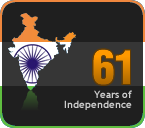
Colorectal cancer
Colorectal cancer, also called colon cancer or large bowel cancer, includes cancerous growths in the colon, rectum and appendix. With 655,000 deaths worldwide per year, it is the fifth most common form of cancer in the United States and the third leading cause of cancer-related death in the Western world. Colorectal cancers arise from adenomatous polyps in the colon. These mushroom-shaped growths are usually benign, but some develop into cancer over time. Localized colon cancer is usually diagnosed through colonoscopy.
Invasive cancers that are confined within the wall of the colon (TNM stages I and II) are curable with surgery. If untreated, they spread to regional lymph nodes (stage III), where up to 73% are curable by surgery and chemotherapy. Cancer that metastasizes to distant sites (stage IV) is usually not curable, although chemotherapy can extend survival, and in rare cases, surgery and chemotherapy together have seen patients through to a cure.Radiation is used with rectal cancer.
On the cellular and molecular level, colorectal cancer starts with a mutation to the Wnt signaling pathway. When Wnt binds to a receptor on the cell, that sets in motion a chain of molecular events that ends with β-catenin moving into the nucleus and activating a gene on DNA. In colorectal cancer, genes along this chain are damaged. Usually, a gene called APC, which is a "brake" on the Wnt pathway, is damaged. Without a working APC brake, the Wnt pathway is stuck in the "on" position
(From Wikipedia, the free encyclopedia)
Colorectal Cancer
Colorectal cancer is the most common gastrointestinal cancer and the second leading cause of cancer deaths in the U.S. Colorectal cancer is caused by a combination of genetic and environmental factors, but the degree to which these two types of factors influence the risk of colon cancer in individuals varies widely. In individuals with familial adenomatous polyposis, the cause of colon cancer is thought to be almost entirely genetic, while dietary factors appear to influence the risk for other types of colon cancer. Animal studies are strongly supportive of a protective role for calcium in preventing intestinal cancers . In humans, controlled clinical trials have found modest decreases in the recurrence of colorectal adenomas (precancerous polyps) with calcium supplementation of 1,200-2,000 mg/day , and a recent study found that the protective effect extended up to five years after the intervention ended . A pooled analysis of ten prospective cohort studies, including 534,536 men and women, found that those in the highest quintile of calcium intake (from food) had a 14% lower risk of colorectal cancer compared to those in the lowest quintile; dietary intakes of calcium ranged from 674 to 1,051 mg/day in the ten cohorts. In this pooled analysis, subjects in the highest quintile of total calcium intake (from food and supplements) had a 22% lower risk of colorectal cancer. Total daily intake of calcium ranged from 732 to 1,087 mg in the examined studies. However, most large prospective studies, individually, have reported increased calcium intakes are only weakly associated with a decreased risk of colorectal cancer. These weak associations might be explained by the presence of groups within the population that differ in their response to calcium. For instance, there is some evidence that individuals with increased circulating levels of insulin-like growth factor-1 (IGF-1) are at increased risk of colorectal cancer, and increased calcium intake may benefit this subgroup more than others. A case-control study of 511 men found that increased calcium intake was more strongly associated with decreased colorectal cancer risk in men with higher circulating levels of IGF-1. Before conclusions can be drawn, more research is needed to clarify whether specific subgroups in the larger population have different calcium requirements with respect to decreasing the risk of colorectal cancer.
So using Cal-Mag according to the instructions will save many people from this dangerous disease. Convey this to your customers and save them.








1 comments:
Colon Cancer is really dangerous. We should detect it on its early stage by using cancer kits.
Post a Comment